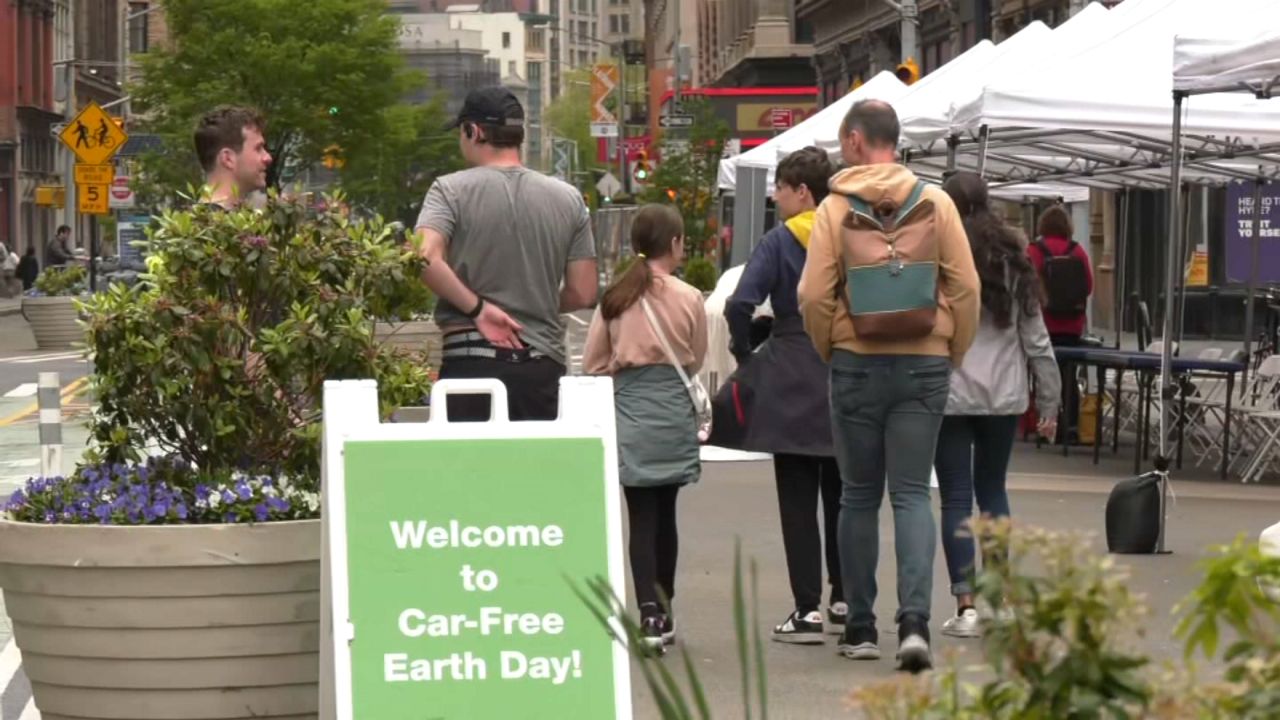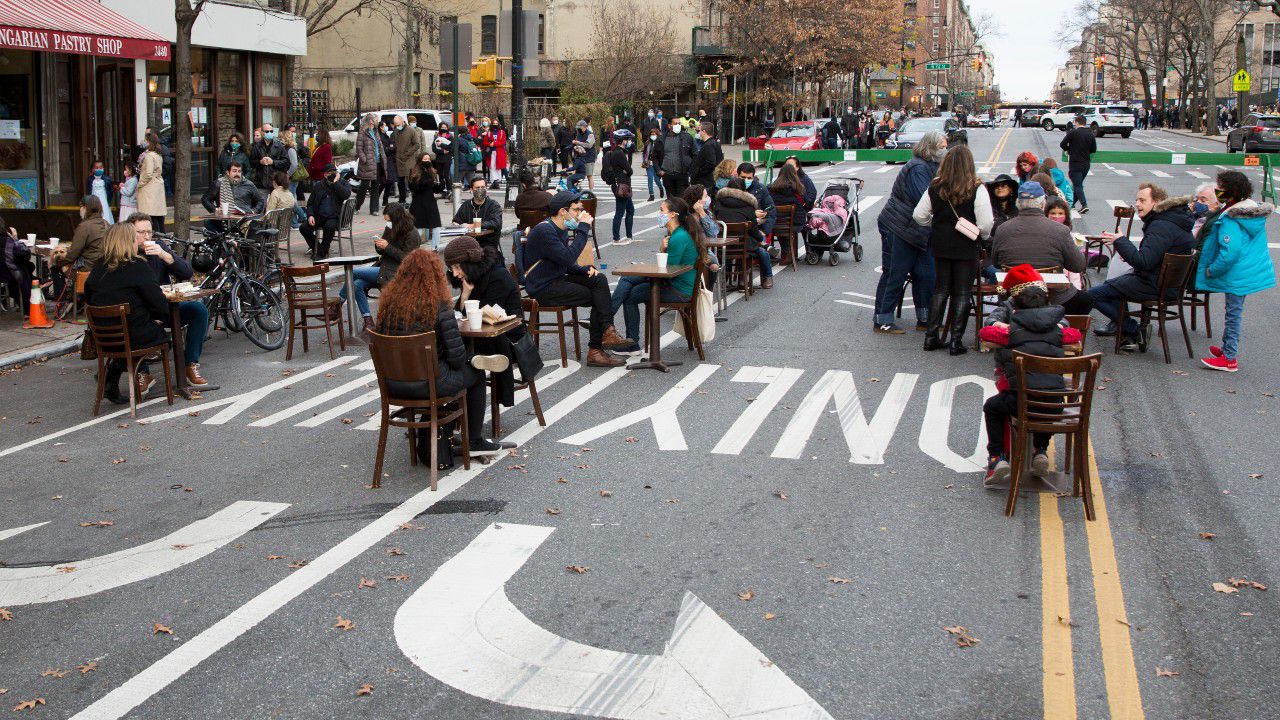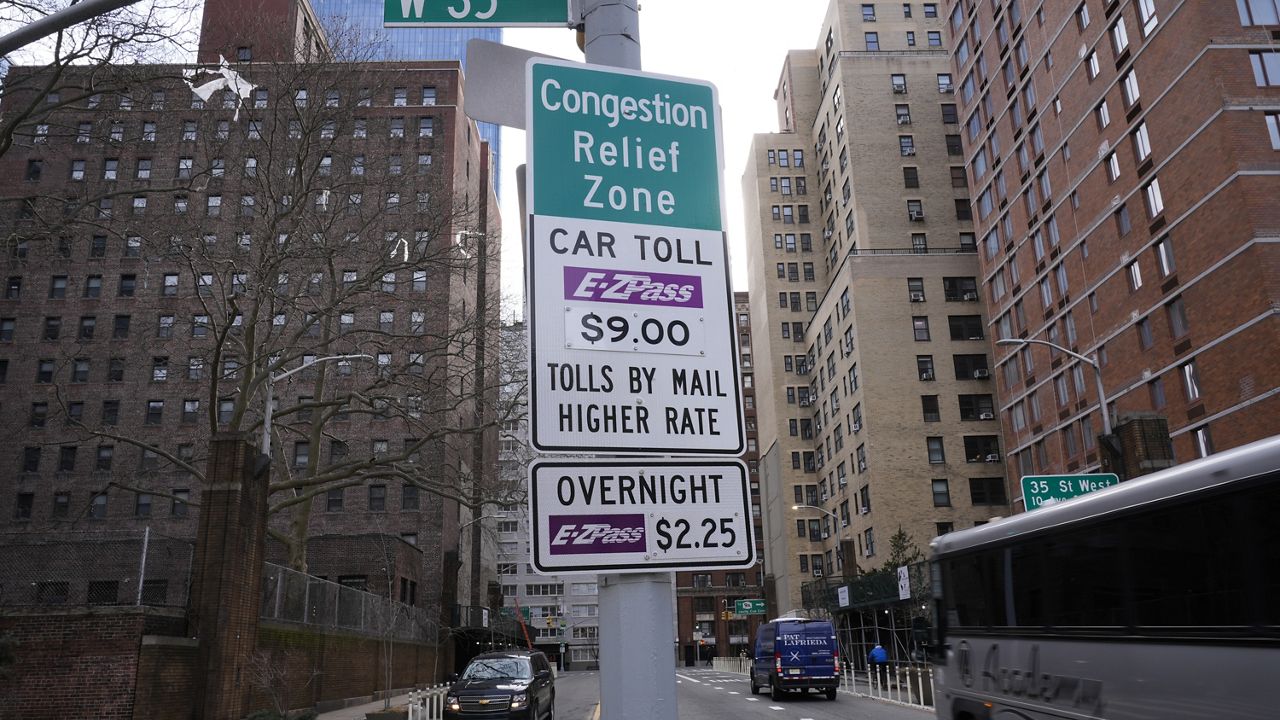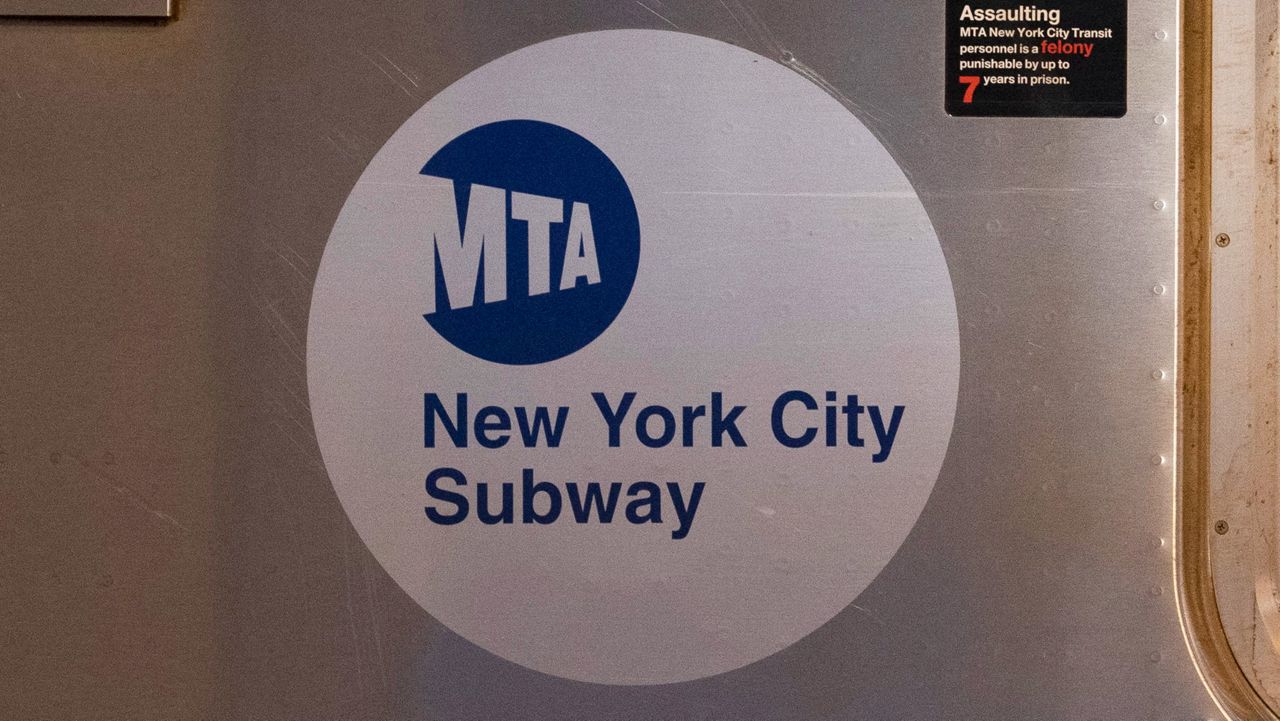A group of New Yorkers, mostly from the Lower East Side, filed a class action lawsuit Thursday against congestion pricing, saying a full environmental impact study must be conducted before the plan moves forward.
What You Need To Know
- A group of New Yorkers, mostly from the Lower East Side, say the MTA ignored the effects of the congestion pricing toll on their neighborhood
- They say it will bring more cars to the FDR Drive to avoid the toll
- New Jersey also updated its lawsuit, claiming the tolling plan is unconstitutional
The suit, filed by a group called New Yorkers Against Congestion Pricing, claims the Federal Highway Administration ignored the MTA's own environmental assessment that showed increased pollution and traffic on roads like the FDR Drive along the Lower East Side.
"We have residents constantly going to the hospital, we have 9/11 respiratory issues in [NYCHA's] Alfred E. Smith [Houses] alone," said Aixa Torres, president of the Al Smith Residents Association. "The upper spectrum of the NYCHA residents [has] asthma. And so now, we're going to have a parking lot."
The suit maintains the FHA should go beyond an assessment and produce an environmental impact statement.
“The city, the state, the federal government did not do the proper review to protect the very citizens that were supposed to be protected by the environmental laws of this nation,” said Jack Lester, who is the lawyer for the group.
It’s the same argument made in a lawsuit by the teacher’s union and Staten Island officials, as well as in two suits out of New Jersey.
Meanwhile, New Jersey Gov. Phil Murphy announced this week he’s amending the state’s suit — formally bringing in the MTA and arguing that the toll scheme violates the “dormant commerce clause” of the constitution.
“States are not allowed to discriminate against goods or people from other states,” Roderick Hills, professor of the NYU School of Law, said of the clause. “We’re one big country, so New York has to treat New Jersey people just like New York people. So they couldn’t charge a special toll on New Jersey people that New Yorkers didn’t have to pay.”
Hills said this may be more of a public relations ploy than a legitimate argument.
New Jersey and now two residents joining the suit who are low-income and say it discriminates because they won’t receive the same tax credits low-income New Yorkers will who live in the Central Business District.
“It’s a little bit of a stretch to say this discriminates in favor of New Yorkers,” Hills said. “It simply treats new Yorkers the same way new jersey treats New Jersey-ites. Everybody pays taxes to their own state. So everyone only gets credit to their own state.”
In a statement, John McCarthy, chief of policy and external affairs from the MTA, wrote: “You’ve got to be kidding. New Jersey collects millions from New York drivers who use the New Jersey Turnpike and Garden State Parkway, but it’s somehow unconstitutional for New York to toll its own roads?”
As for whether the government should have done a more thorough reviews, Hills said, “Typically, the courts will defer to the federal government if they feel they did a good-faith job.”
The new lawsuit with 34 plaintiffs could be merged with the other lawsuit from the United Federation of Teachers and Staten Island.
So far, no hearing date has been set.
In response to the latest lawsuit, the MTA said: “This issue has been exhaustively studied in the 4,000-plus page environmental assessment, and will be re-evaluated for the adopted tolling structure before tolling commences. It’s time to move forward and deal with the congestion that’s clogging roads and slowing down emergency vehicles, buses and commerce while also polluting the air we breathe.”







